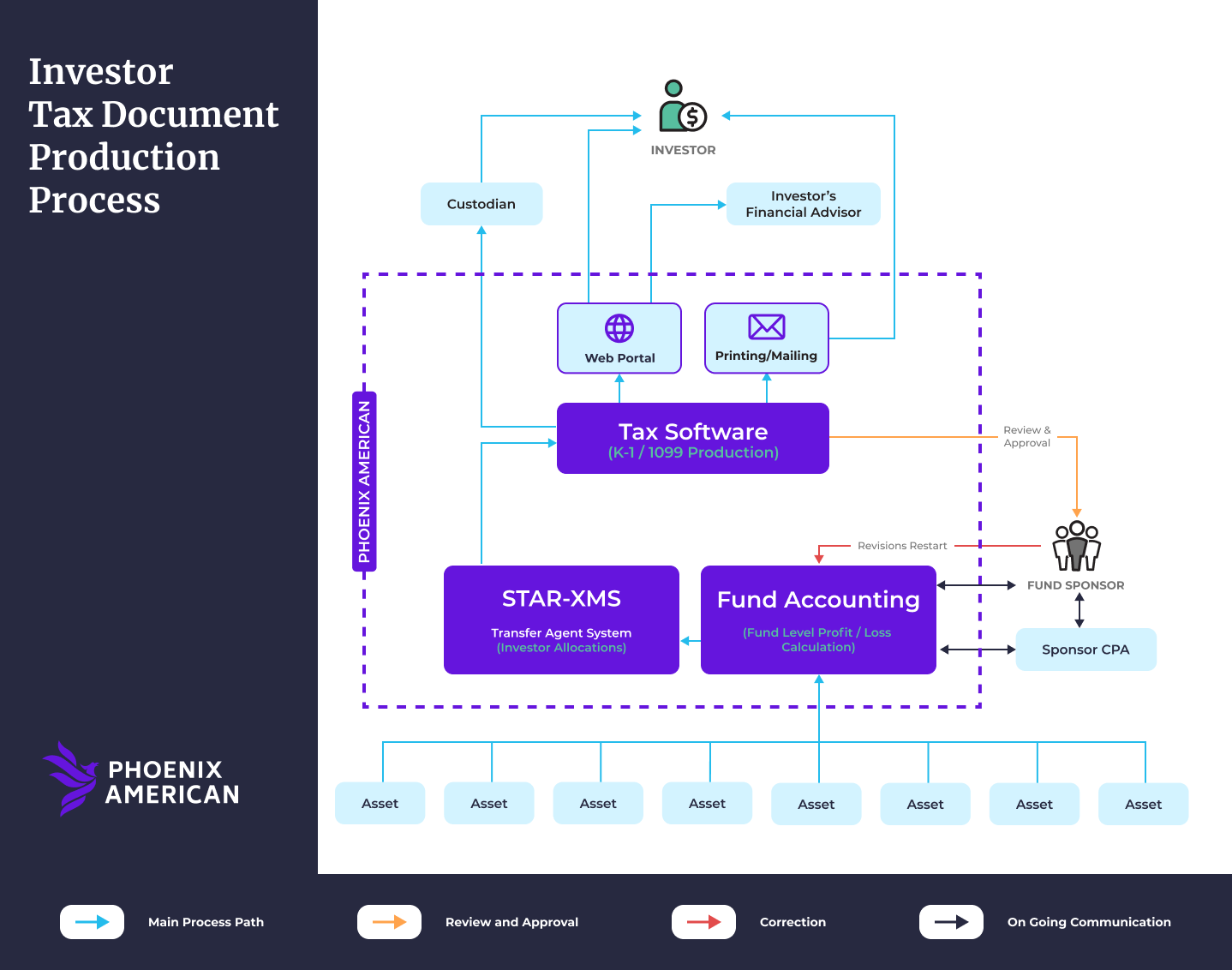Tax season is a challenge for fund managers. There are often multiple unexpected headaches with potentially serious consequences. Full-service fund accounting and tax preparation outsourced to an experienced provider that plans ahead for tax season can make an enormous difference. A fund accounting partner helps by simplifying and expediting processes while ensuring that every base is covered. We discussed in part one how the right fund accounting partner can change the game for managers during tax season.
The Complexities of Tax Season
There are many challenges for fund accounting and tax preparation in the new age of alternative investments. Fund managers are expanding into new structures and asset classes, more and more Americans are living outside of the country, there are K-1s, K-2s, K-3s to consider. Fund accounting teams, to be successful, need to prepare not only to fulfill their own role but to facilitate the roles of others: advisors, custodians, auditors and tax preparers. Vendor 1099s are a significant headache. Some but not all investors are filing with custodian tax IDs. Fund accounting, transfer agent and tax preparation systems are not designed with the same requirements. All these challenges, if anticipated by fund accounting, can be minimized with experience-based planning ahead.
The Little Things
Simple process issues can become major roadblocks for fund accounting during tax season. Character limits in system fields require abbreviations standardized across systems. Zip code formats vary. Conflicts arise between tax software, fund accounting systems and the investor registry system. Tax estimates present challenges. Once tax calculations have been accomplished, multiple vendors for printing tax documents, mail delivery and web portal delivery create hold-ups and potential for confusion. With fund accounting data moving between third parties and outside vendors, data security is a looming concern.
Focus on the Details
Tax season reveals an array of details on both the asset and investor side, essential to processing taxes, that fund accounting needs to accommodate. Appropriate mailing addresses for investors is not always clear. Investors with multiple homes often have seasonality to their mailing address depending on the time of year. Fund accounting will have to track mailing instructions for investors from the shareholder registry to avoid the confusion of mailing to the wrong address. Some investors have nominees for qualified accounts, using custodian addresses and tax IDs for tax documents on those accounts but not for others. Fund accounting will have to track which investors are using custodial tax IDs and on which accounts.

The placement and role of ‘disregarded entities’ must be clear to the fund accounting team. These entities pass through some other entity in the architecture of a fund structure and so are not the final filer of a tax return. It is critical that fund accounting recognize when an entity is housed within a larger structure and for tax purposes will be falling under that structure’s name.
Planning ahead and thinking of these things ahead of time is a core function of a fund accounting partner in the preparation of tax documents. Known issues that come up during tax season should be addressed upon setup of the fund, throughout the year and at year end to simplify and streamline tax season for everyone. Lining up systems and processes so that by the time tax season actually happens, it’s easier, faster and less expensive benefits all of the many stakeholders in the process.
Fund Accounting Focus
During tax season, deadlines are tight and all the tax firms are swamped. There are more funds than ever before, all working against the same deadlines, so your fund accounting partner’s ability to plan ahead based on known issues saves a lot of frustration and expense. When fund accounting plans ahead, anticipates the needs of all stakeholders and aligns systems to capture, maintain, manipulate and transmit data effectively, it can greatly streamline the tax season experience. Tax season can be much less of a headache for fund managers, but an experienced, technologically advanced and capable fund accounting partner needs to be at the heart of the process.




